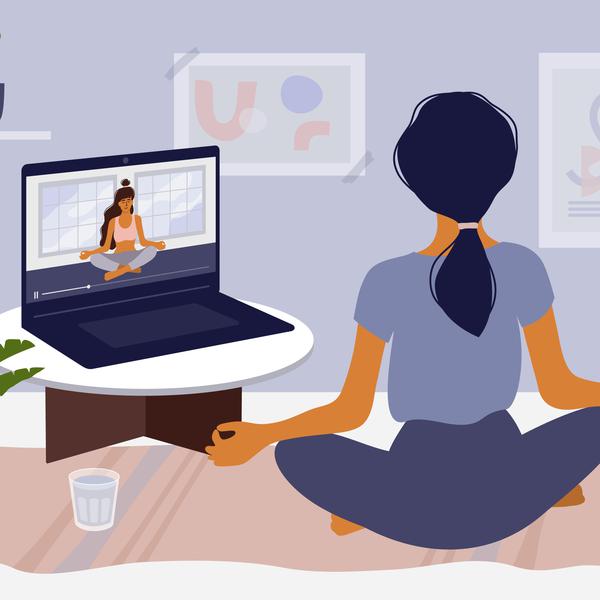How do you know if you are bored? Some people may be able to answer this question quickly, while others might need to give it some thought. There is no one-size-fits-all definition of boredom, and there is no single way that everyone deals with it. However, for many people, boredom is a feeling that leads them to eat when they aren’t hungry or even full. If this sounds like you, this blog post will provide strategies and solutions on how to stop eating when bored!
Identify the problem
The problem of eating when bored is a complicated one. It may simply mean that you’re hungry, or it could be caused by boredom, loneliness, or stress. Identifying the root cause will help determine what strategy to use to stop this behavior and how often your success rate has been using these strategies on previous occasions.
Identify why people typically eat out of boredom: there are many different reasons as to why people feel the need to turn food into an activity; some common causes would include being lonely, stressed about work/home life balance, etc., not having enough energy left for physical activities outside the home (e.g., exercise). You can also find new ways to distract oneself from feeling like one mind needs.
Determine what is causing the boredom
It may be challenging to identify the cause of boredom eating, but it is important to do so. If you feel that a particular part of your day or routine causes this issue, there are ways to address these times and stop them from becoming triggers for hunger. This can include: Creating more complex tasks during their time which could involve challenging themselves mentally – Find new activities or hobbies outside of what they usually do – Applying creative thinking skills by drawing out ideas on how they might improve an aspect of their daily life (e.g., make lunch healthier).
Create a plan to change your situation and environment
You can create a plan to change your situation or environment. For example, if you are bored at work and feeling hungry, take a walk outside for five minutes. If that is not possible, get up from your desk periodically to stretch or do some other task away from where you would otherwise be sitting down (such as going downstairs).
If there’s something in the room putting you off eating – such as a distasteful smell like strong coffee brewing next door – look around until you find a space with air freshener plug-in scent strips instead of whatever it was that was bugging you before. But avoid any place with too much food available unless it’s one thing at a time because more choices make things worse!
Take small steps to make progress, even if it is just for a few minutes at a time.
By taking small steps to make progress, it will be much easier to stop eating when bored. For example, if you are on the computer and find yourself with nothing to do for a few minutes, take that time to work out or go jogging around your building. The goal is not necessarily fitness as much as taking steps in any direction but towards boredom-fighting behaviors (eating). Taking small steps each day can also lead up to significant changes over time!
If this strategy doesn’t work for you, but you still need something active to do, then try doing some simple stretches like sitting cross-legged and touching your toes or stretching one arm at a time across the chest by reaching behind your back. This might seem silly, but studies show how these types of exercises can give you better output.
Use positive self-talk when you are tempted to eat something unhealthy or not on your diet plan.
- Say to yourself, “I am strong and I can resist the urge.”
- Remind yourself that you will feel better about your decision if you hold out for a little longer.
- Ask someone else how they are doing right then, so you have something else on your mind other than eating when bored.
- You could also try distracting yourself by taking care of something at home or playing a game, like solitaire, on your phone or tablet.
Reward yourself with food after you do well with this strategy
You should reward yourself with food after doing well with this strategy for an extended period. For example, if you go a whole day without eating junk foods or anything unhealthy, the next day, you should treat yourself to something like pizza (or whatever your favorite food is).
This way, it won’t feel so bad when indulging in some of your favorite treats every once in and while because you’ll know that tomorrow will be another opportunity to stay on track again.
You can also reward yourself by doing things other than eating – such as watching TV shows or reading books- but make sure not to confuse these rewards from breaking through those difficult barriers. For instance, one study found that people who exercised more often reported fewer cravings.
Get a hobby that is engaging and interesting.

You can get in the habit of eating less when bored if you find a new engaging and exciting hobby. You might get tired just thinking about trying to do something like crocheting for hours on end, but it’s worth it if you can stop yourself from overeating because of boredom.
- If you’re not sure what sort of hobby would suit your needs best.
- Please find out how people who have similar hobbies spend their time!
- If there are no specific group blogs or websites dedicated to your area of interest (for instance, cooking), try general sites with informational articles.
Set a timer to limit your time spent eating
The best way to stop eating when bored is to set a timer to limit your time spent eating. Set the timer for 15 minutes and spend that amount of time focused on something else, such as talking with friends or reading literature. You can also set the alarm so you are not tempted to eat more than what you should be doing in this time frame.
The best way to stop eating when bored is by making sure nothing is tempting nearby while trying to work on your other task. For example, if you sit down at your desk hoping to get some homework done but then see all the chips sitting right next to it, put them away before they become too tempting and then go back about working on whatever project was originally planned instead of relying.
Use smaller plates, so you don’t feel as full after eating less food
Smaller plates can also help to limit how much food you’re eating. Studies have shown that people given a larger plate would eat more than those with small plates because they felt less complete after consuming smaller amounts of food.
Suggestions for using smaller plates: Take the size down to dinnerware and use them at home, or get an extra set of utensils so you can alternate between two different sizes when out to eat.
Keep healthy snacks handy like apples, nuts, carrots sticks, dark chocolate
Healthy snacks can support you when you are bored and alone with only your thoughts to occupy yourself.
This may not be the most convenient solution, but it is a great way to prevent mindless eating when you’re bored. Pack up a baggie full of dried fruit, nuts, whole-grain crackers or breadsticks, hard-boiled eggs (if they last that long!), energy bars – anything that will fill you up without being high in calories or junk food. This might mean buying some things from the grocery store so that there’s always something on hand for those times where hunger strikes and all other options have been exhausted! Keep this bag in a drawer at home if it’s too inconvenient otherwise.
Have a plan for what you will do when you’re bored
You must have a plan for when you are bored. Write down a few activities that will keep your hands and mind busy, such as reading a book or playing with toys. This way, whenever you’re feeling restless, you can find something to do to pass the time!
Put away all snacks from reach so that if you happen to get hungry while working on your computer at work or doing homework in school, there won’t be anything tempting right next to you. If this doesn’t help enough and causes withdrawal symptoms like headaches and stomachaches, start by just putting them out of sight but not too far away, maybe under one side of your desk/desk chair.
Get out of the house and go to a coffee shop, library, or bookstore
By going out and doing something that interests you, it will be harder to think about food! If there are a lot of people around, you won’t feel quite as bored. It’s easier when we have company because the time goes by more quickly, and the mind is occupied with other things instead of being focused on how hungry or bored we might feel.
In addition, coffee shops often have free WiFi, making it an ideal place for those who don’t want to spend money but still need internet access.
This strategy also works well if your boredom stems from a lack of socializing opportunities during lunchtime at work–you can go out and enjoy some midday solitude while getting a little bit closer to meeting new people and making friends.
Be active – take up an exercise routine that gets your heart rate going

To be active is to be physically engaged in productive activity. Exercise is one way of being active, but you can also choose activities like gardening or cycling that get your heart rate up.
Make food exciting – make time for cooking new recipes with fresh ingredients and spices. To have an appetite means you are hungry (or want something tasty). Cooking yourself the foods you love will help satisfy this desire while still keeping it interesting. It’s all about taking some time to cook delicious meals from scratch! Spices add zing without piling on calories, so there’s no excuse not to try them out when making dishes at home too. You can also eat more often breakfast, small snacks throughout the day, and healthy dinner.
Avoid eating when you are hungry because it will only make the craving worse.
Avoid eating when you are hungry because it will only make the craving worse. Hunger suppresses your ability to reason and can lead to mindless eating, which may or may not be what you want. If you find yourself feeling this way, try having a small snack before bed instead of an evening meal so that your hunger is satisfied in the morning when breakfast rolls around.
Avoiding food after dinner at night also helps curb any cravings for midnight snacking and take away some of those temptations when they come along later on during sleep time.
Eat foods with high protein content like nuts or seeds to curb hunger cravings.

Food with high protein content can help to curb hunger cravings. If you eat a burger, order the lower fat content option and add some avocado or other high protein topping for added satisfaction.
Many people think that if they don’t feel hungry, it’s not necessary to eat, but this is wrong. Eating when bored may be more of an issue than just having difficulty controlling your appetite, so make sure you’re also getting enough fiber in your diet from whole grains, fruits, and vegetables, as well as nuts like almonds which are a great source of healthy fats such as omega-three fatty acids.”
If possible, try spacing out meals throughout the day instead of consuming three large ones spaced far apart. This will reduce repetitive feelings of being hungry.
Make time for yourself to relax and unwind before bedtime so that sleep comes more easily.
Relaxation can refresh and revitalize your body and mind, but it also provides a break from the constant demands of work or other responsibilities. A relaxing activity before bedtime can help prevent you from using food as a way to deal with boredom.
- Before going to sleep for the night, take time each day to do something that relaxes you: such as reading an entertaining book, taking a soothing hot bath, listening to music, meditating on scripture, or devotional thoughts.
- Take some time during the day away from your phone, computer screens, TV screen, and other sources of input–especially if they’re stressing out your brain! This will give you more space in which to think about what’s next on your agenda without feeling overwhelmed by all it is left.
To sum up,
It is easier said than done, but if you follow these tips for stopping eating when bored, it will be a lot easier. Remember that the most important thing is making small changes and working your way up to bigger ones as time goes on. By following our advice in this blog post, we hope to help you get back on track with your weight loss goals!



